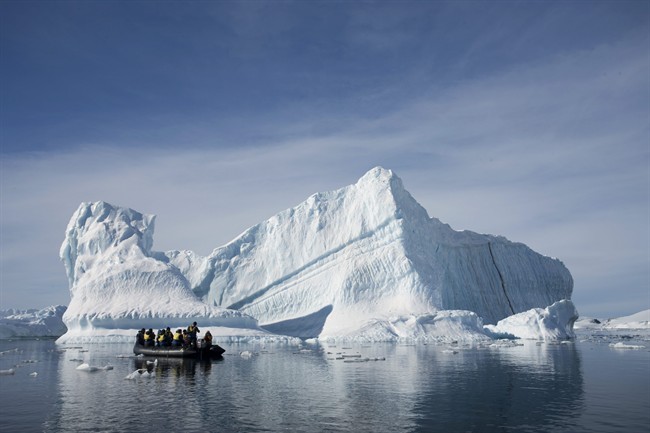WASHINGTON – Newly analyzed data from East Antarctica say the remote region has set a record for soul-crushing cold.

The record is minus -94.7 C.
A new look at NASA satellite data revealed that Earth set a new record for coldest temperature recorded. It happened in August 2010 when it hit -94.7 C. Then on July 31 of this year, it came close again: -92.9 C,
READ MORE: Volcano discovered beneath West Antarctica
The old record had been -89.2 C.
Ice scientist Ted Scambos at the National Snow and Ice Data Center announced the cold facts at the American Geophysical Union scientific meeting in San Francisco Monday.
“It’s more like you’d see on Mars on a nice summer day in the poles,” Scambos said, from the American Geophysical Union scientific meeting in San Francisco Monday, where he announced the data. “I’m confident that these pockets are the coldest places on Earth.”
However, it won’t be in the Guinness Book of World Records because these were satellite measured, not from thermometers, Scambos said.
“Thank God, I don’t know how exactly it feels,” Scambos said.
But he said scientists do routinely make naked 73 degree below zero Celsius dashes outside in the South Pole as a stunt, so people can survive that temperature for about three minutes.
Most of the time researchers need to breathe through a snorkel that brings air into the coat through a sleeve and warms it up “so you don’t inhale by accident” the cold air, Scambos said.
Waleed Abdalati, an ice scientist at the University of Colorado and NASA’s former chief scientist, and Scambos said this is likely an unusual random reading in a place that hasn’t been measured much before and could have been colder or hotter in the past and we wouldn’t know.
“It does speak to the range of conditions on this Earth, some of which we haven’t been able to observe,” Abdalati said.

Comments